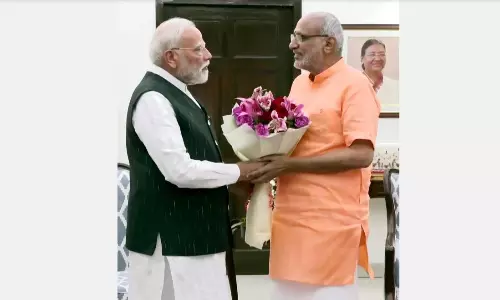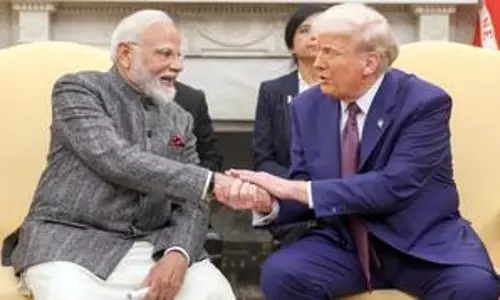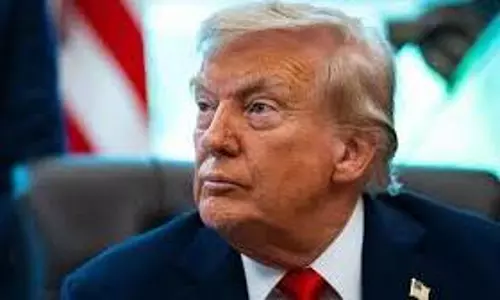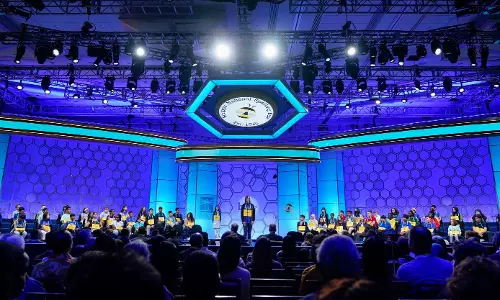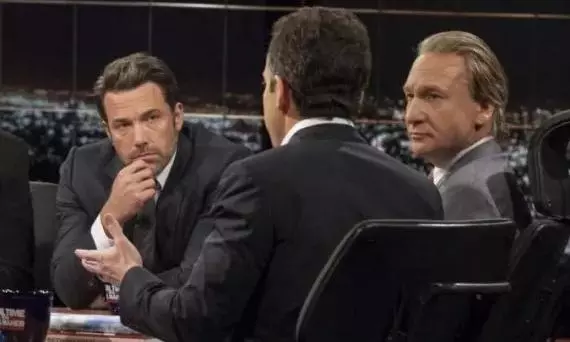
Ben Affleck’s stand against Islamophobia underlines liberalism free of selective application
text_fieldsIn an era of viral outrage and celebrity silence, a rare moment of sincerity can break through. That’s exactly what happened last month when I had a brief but unexpected encounter with Hollywood actor Ben Affleck.
While walking with my wife, she spotted Affleck in the distance. To her horror, I walked straight up to him before she could stop me. “Hey Ben,” I said. He looked up, clearly caught off guard—likely expecting a selfie request or a comment about The Accountant 2. But instead, I told him, “You probably don't remember, but I want to thank you for standing up for Muslims and calling out Islamophobia years ago on…”
Before I could finish, he smiled and said, “On Bill Maher show?”
I nodded. Without missing a beat, he replied: “It should be obvious. There’s no place for hate.”
My wife had caught up by then and instinctively recorded the tail end of our chat—a brief handshake, but a powerful moment of moral clarity. It reminded me—and clearly millions of others, judging by the online response—that words matter, especially when they come from unexpected places.
It brought me back to 2014, when Affleck pushed back hard against Bill Maher and Sam Harris on Real Time. Harris, a well-known atheist commentator, had called Islam “the mother lode of bad ideas” and accused liberals of failing to confront theocratic threats. Maher chimed in, insisting that Muslim societies broadly lacked liberal values.
Affleck, to his credit, refused to let it pass. “It’s gross. It’s racist,” he said, likening the rhetoric to saying, “Oh, you shifty Jew.” He reminded viewers that more than a billion Muslims are not fanatics—they just want to live ordinary lives, go to school, and have lunch in peace.
In the years since, that moral clarity has only become more urgent.
Sam Harris has gone on to justify profiling Muslims, argue that jihadism is worse than Nazism, and suggest that civilization exists only “on one side” of today’s global conflicts. Maher has continued to use his platform to mock Muslims and defend blanket suspicion under the guise of liberalism.
Most recently, in Newsweek, Dr. Qanta Ahmed raised an alarm about a Muslim housing development in Texas known as EPIC City. She cast suspicion on its spiritual advisor, Dr. Yasir Qadhi—a respected, Yale-educated Islamic scholar—not for advocating violence, but for being visibly devout and politically outspoken. No evidence was presented. Only insinuations. It was a disturbing reminder of how easily religious identity can be weaponised in public discourse.
And it’s not just an American issue. In India too, Muslims face growing scrutiny and vilification—not because of what they do, but because of who they are. Whether it’s the targeting of hijab-wearing students, state surveillance of activists, or the branding of peaceful dissent as extremism, the lines are being redrawn around which minorities are allowed to speak, to assemble, to exist without fear.
That’s why Affleck’s moment matters. It wasn’t dramatic. It wasn’t performative. But it was decent. And in times like these, decency is revolutionary.
If liberalism is to survive as a moral force, it must reject the selective application of its principles. Defending free speech must include unpopular voices. Protecting minorities must mean more than lip service. And standing up to bigotry must not depend on which group is being targeted.
In a world that increasingly rewards silence or tribal loyalty, Affleck’s words—“There’s no place for hate”—ring louder than ever. Especially for those of us who can’t afford to remain silent.
Because the fight against Islamophobia is not just about defending Muslims. It’s about defending the very idea of equal dignity for all.
(Faisal Kutty is a Toronto-based lawyer and regular contributor to The Toronto Star. His articles also appear in Newsweek, Al Jazeera, Zeteo, and Middle East Eye. You can follow him on X @faisalkutty)





